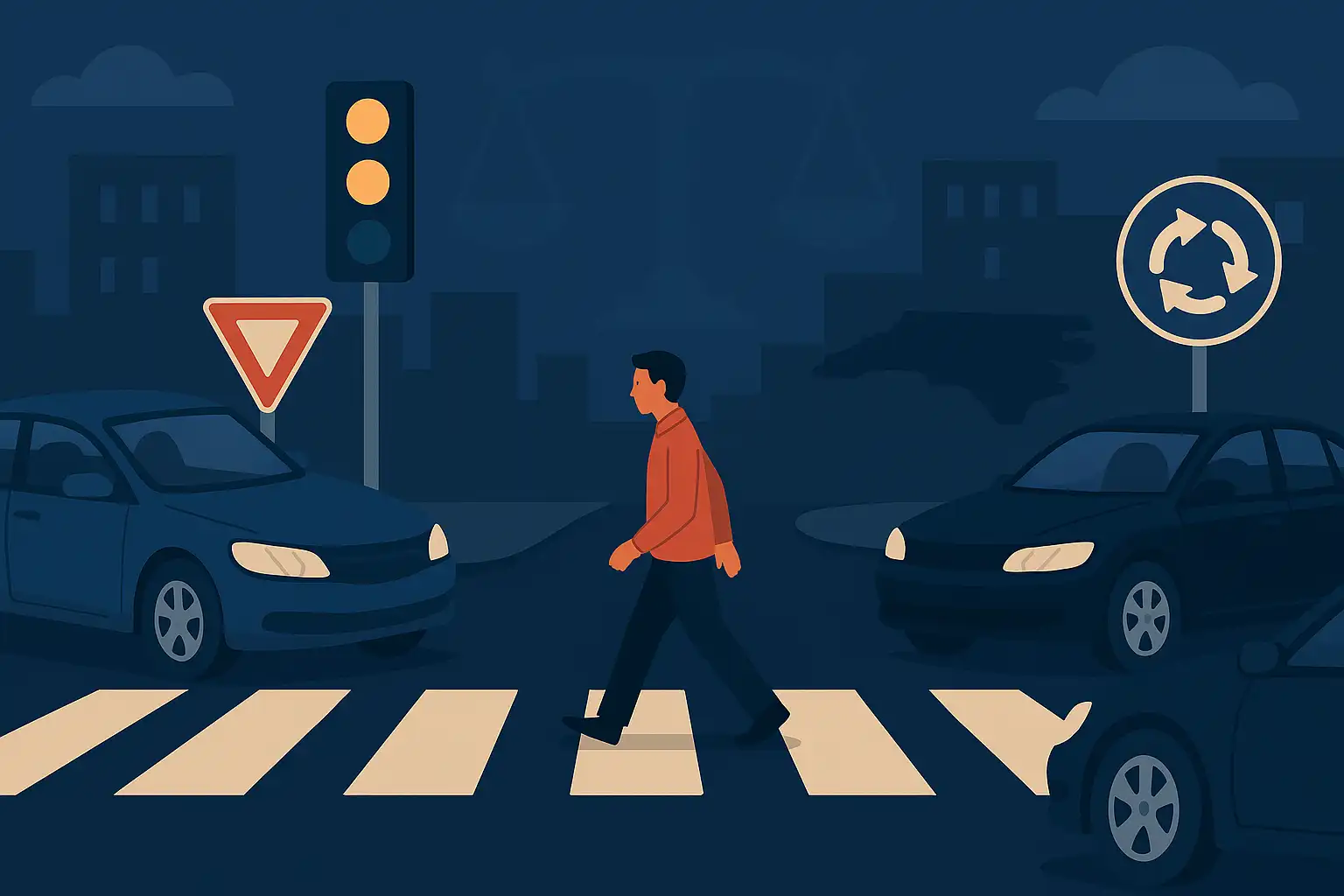Available 24/7
Se Habla Español
Free Case Evaluation
Evaluación gratuita de caso
(919) 438-0065

In North Carolina, understanding right of way laws is essential for every driver. These laws dictate who has the legal priority to proceed in various traffic situations. Whether you're at a four-way stop, a busy intersection, or simply navigating a crosswalk, knowing the rules is crucial for preventing accidents. A failure to yield can lead to a serious collision, injuries, and a complex personal injury claim.
At Paul Robinson Law, P.L.L.C., we help people throughout the Raleigh, Cary, and Durham areas who have been hurt in accidents caused by a driver's negligence. We've seen firsthand how not following North Carolina right of way laws can change a person’s life forever. This guide breaks down the key rules of the road in North Carolina, and explains what to do if you've been injured in an accident.
The simplest answer to 'what is a right of way?' is that it's the legal right of a pedestrian or vehicle to proceed first. The concept is straightforward: the driver who has the right of way is allowed to go, while the other driver must wait or yield.
The state of North Carolina's General Statutes, specifically NCGS § 20-155, outlines specific rules that govern this. Violating these laws is a common cause of car accidents and can be considered negligence in a personal injury case.
Here's a breakdown of some of the most common traffic situations where right of way laws in NC apply, as defined by the statute.
Below are some of the most common situations where right of way laws in NC come into play. It's important to remember that yielding the right of way is about safety, not just who is 'right'.
A failure to yield can have serious legal consequences. Violating a highway right of way or roadway right of way can lead to fines, court costs, and points on your driver's license. The violation of a safety statute, like NCGS § 20-155, is often considered "negligence per se," which means the at-fault driver's negligence is presumed in a civil lawsuit.
However, the most severe consequence is often the accident itself. When a driver fails to yield and causes a collision, they are considered legally at fault. This opens the door for a personal injury claim, where you can seek compensation for:
If you've been injured because another driver failed to yield, it's crucial to speak with an experienced personal injury attorney. It’s their job to prove the other driver’s negligence and fight for the compensation you deserve.
After an accident, you shouldn’t have to fight the insurance company alone. At Paul Robinson Law, P.L.L.C., we have years of experience representing clients in Raleigh, Durham, Apex, and the surrounding areas. We know the ins and outs of right of way laws in NC and can build a strong case to get you the best possible outcome.
If you've been hurt in an accident where the other driver failed to yield, don't wait. Contact Paul Robinson Law today for a free, no-obligation consultation. We’ll review your case and help you understand your legal options.
Call Us At
919-438-0065
105 S Ellington St, Clayton, NC 27520
124 St Marys St Ste 201, Raleigh, NC 27605
800 W Williams St #250 Apex, NC 27502
Clayton Office:
Phone : 919-438-0065
Raleigh Office:
Phone : 919-471-3200
Apex Office:
Phone : (919) 944-4630
105 S Ellington St, Clayton, NC 27520
124 St Marys St Ste 201, Raleigh, NC 27605
800 W Williams St #250 Apex, NC 27502
Copyright @2026 The Law Offices Of Paul Robinson. All Rights Reserved.
This site is for information purposes only. No attorney-client relationship is created by use of this site. No legal advice is intended by its use. An attorney-client relationship is only created speaking to an attorney and signing a representation agreement.
By providing your phone number, you agree to receive text messages from Paul Robinson Law, PLLC. Message and data rates may apply. Message frequency varies.

